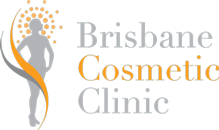What to do before your Surgery
Properly preparing for your Cosmetic surgery procedure is key to ensuring you have the best possible surgical experience.
While each procedure has it’s own pre and post-operative instructions, here are some general guidelines that apply to most surgeries. Please keep in mind that this page is intended only to help prospective patients better understand what they can expect before committing to surgery. This information should not replace the pre-operative instructions given to you during your consultation with Dr Konrat.
Preparing for Surgery
Stop smoking
Smoking is one of the single biggest predictors of post-operative complications. Smokers are more prone to wound breakdowns, and generally heal slower than their non-smoking counterparts. For this reason, you should quit smoking from at least six to eight weeks before surgery until six to eight weeks after surgery.
Adjust your medications
Certain medications, such as aspirin and ibuprofen, can interfere with normal blood clotting and prolong healing. Before undergoing surgery, you should speak with your doctor about any and all mediations you are taking so they can adjust your dose or recommend alternatives. Arrange for a responsible person to drive you to and from the hospital. You will also need them to stay with you at home for the first few days to help you with daily tasks.
Take care of any errands
Undergoing surgery can be both mentally and physically exhausting, and it is likely that you will want to stay home and rest for at least the first few days following. Ensure that you are prepared beforehand by taking care of any necessary errands, for example filling in prescriptions and going grocery shopping.
Prepare your recovery space
Depending on the procedure, your recovery could take anywhere from a few days to a few weeks. You’ll want to be comfortable while you heal, so we recommend preparing a cosy space ahead of time. Buy frozen packs of peas to keep ready to apply to reduce inflammation and swelling. Gather plenty of pillows to keep you comfortable, and find a bunch of books or movies to keep you entertained.
Report any signs of illness
It is important to be healthy on the day of your procedure. If you notice any symptoms of a cold or other illness in the days leading up to your surgery, please contact Dr Konrat’s friendly surgical team.
Surgery Day
Shower as directed
The morning of your procedure, you should shower and wash your hair. You will be unable to shower after surgery, so ensuring you are clean beforehand is always of benefit. Your nurse will advise you, during your scheduled post-operative appointment, when you are able to resume showering.
Stop eating and drinking
If you are having a general anaesthetic you will need to stop eating or drinking anything, even water, 12 hours before your surgery. Having anything in your stomach can increase your risk of complications. If you must, you can ingest a small sip of water to take medication 4-6 hours before your surgery. Your fasting time will be clearly marked on your pre-operative instructions.
Wear comfortable clothing
You should wear comfortable, loose-fitting clothing to the hospital. We recommend a button-up shirt, soft track pants that can be easily pulled on and flat, slip-on shoes. Clothes that do not need to be pulled over your head are best. Remove jewellery and contact lenses. You should not wear any jewellery, including piercings to your procedure. Contacts should also be taken out and glasses worn to the hospital instead. Do not wear makeup and other products. You should not apply any products to your skin before surgery. This includes makeup, creams, lotions, hair gels and sprays, perfumes and deodorant. You will also need to remove any nail polish and acrylics. Such products will add bacteria to your skin and increase the risk of infection.
Arriving for you Procedure
We recommend arriving early for your procedure. Your admission time will be clearly noted on your paperwork and pre-operative forms.
Follow Dr Konrat's Instructions
Remember that this is just a guideline of pre-operative instructions. In addition to this, it is crucial that you follow any specific instructions that Dr Konrat provides.

